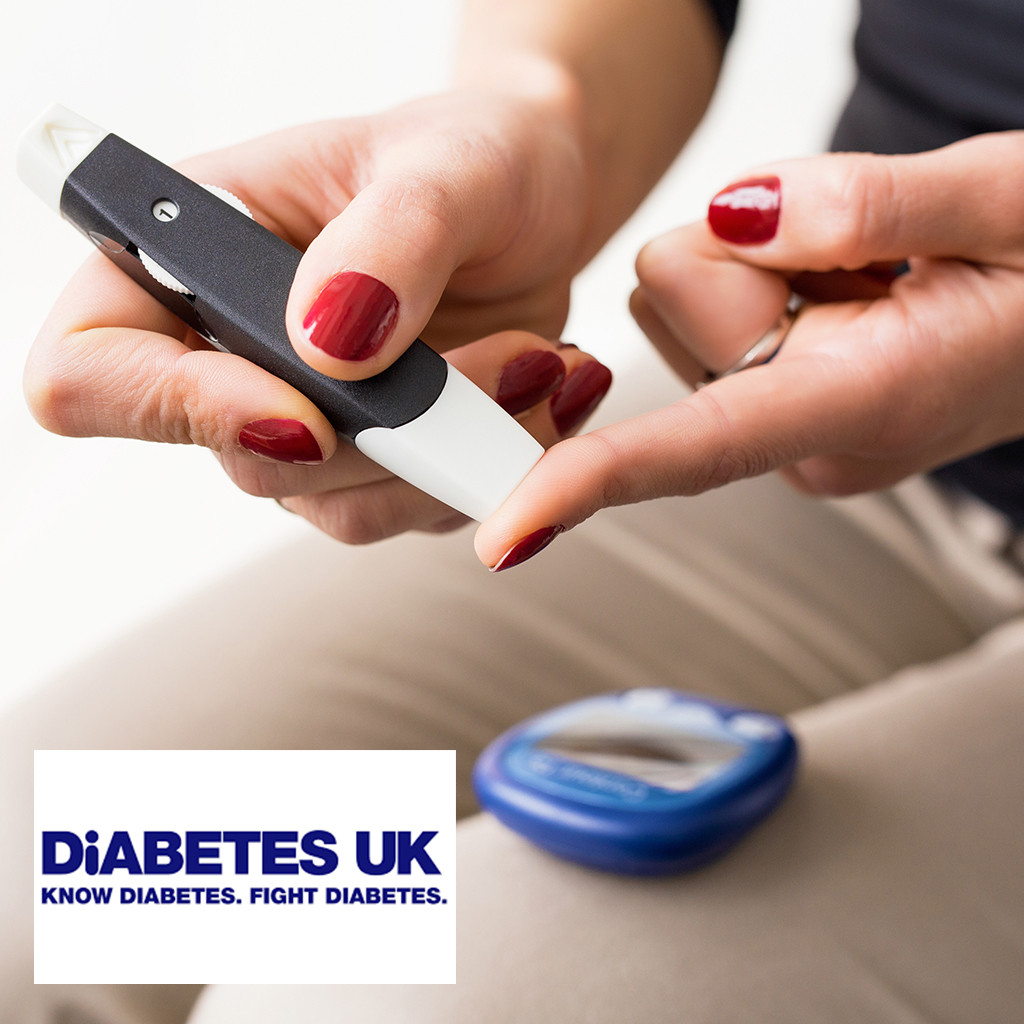This week, Diabetes UK launched their Diabetes Awareness Week, a campaign helping people understand the signs, symptoms, and management of the condition.
What is diabetes?
Throughout the awareness week, we will be sharing facts and statistics on the various types of diabetes, and the effects of the condition.
The three main types of diabetes are:
Type 1 diabetes
This condition usually starts at a very young age, when the body’s immune system mistakenly destroys the insulin-producing cells in the pancreas, severely affecting the production of insulin. Insulin is the hormone that maintains blood sugar levels. Treatment, therefore, is usually insulin. It cannot be prevented.
Type 2 diabetes
This is a chronic type of diabetes where, even though the production of insulin is fine, the body doesn’t utilize the available insulin properly, causing high blood sugar levels. This is preventable and you can go into remission after a diagnosis, with very careful management, usually diet and exercise focussed. Early diagnosis is key.
Gestational Diabetes
This develops in mothers during pregnancy. It is usually caused due to certain hormones being produced by the placenta. There are risk factors to both the mother and the baby, so careful management is extremely important.
What is the impact of poor diabetic care?
Whilst diabetes can be managed well, with a large number of those diagnosed able to manage the condition well, Diabetes UK is also helping to raise awareness of the impact of poor diabetic care.
Diabetes UK has reported that the number of deaths in people with diabetes has increased by 7,000 per year compared with pre-pandemic levels, a rise of 13% and is calling for a commitment from the Government and Health officials to tackle the “diabetes care crisis”.
Poor diabetes care may be behind 7,000 excess deaths - BBC News
Diabetes UK has reported that 1.9 million people missed out on vital checks which provide “life-saving care”. Routine checks that people with diabetes should have include blood pressure, cholesterol, and blood sugar monitoring and are key to preventing serious health problems associated with diabetes such as cardiovascular disease leading to heart attack or stroke.
The chief executive of Diabetes UK, Chris Askew, explained that diabetes is "relentless" and people living with it need close support and monitoring by healthcare professionals.
He went on to say:
"Yet far too many people with diabetes are being left to go it alone managing this challenging and potentially fatal condition, with deeply alarming numbers of checks either missed or delayed."
In addition, diabetes can cause microvascular problems, which are problems to the small arteries in the body, such as retinopathy (disease of the retina) and neuropathy, also known as nerve damage.
People with diabetes should therefore be referred for regular eye and foot checks. Without these regular checks complications such as retinopathy or Charcot Arthropathy may be missed or what would normally be minor foot problems could deteriorate and lead to amputations. The NHS reports that people who have diabetes are 15 times more likely to undergo amputations than those without the condition.
That being said, if adequate and prompt foot care and conditions are identified early, this can be managed well. It is therefore vital that early signs and symptoms are identified and treated quickly.
There are currently 4.3 million people in the UK living with a diagnosis of diabetes with an additional estimated 850,000 people with undiagnosed diabetes. With numbers increasing overall and standards of care dropping there are unfortunately likely to be many more compensation claims relating to negligent diabetes care.
Can I bring a compensation claim for diabetes complications?
Our experienced medical negligence specialists at Tozers have handled many diabetes-related cases including the following:
- Inadequate surgical treatment of foot blisters in a type 1 diabetic patient by inexperienced medical staff. The blisters became ulcerated and infected and led to the need for amputation of the middle toe. There was subsequent delayed healing for 2 years.
- A delay in the diagnosis of type 2 diabetes for over 2 years despite clear symptoms and high glucose recordings. Our client suffered an avoidable ischaemic stroke.
- Inadequate surgical treatment leading to amputation. Although the surgery and resultant treatment were not directly related to diabetes, our client had a plethora of unrelated conditions including type 2 diabetes. The presence of the same meant that evidence as to the likely progression of the diabetes was required to ascertain whether this would have an impact on life expectancy and indeed the overall value of the claim.
- Avoidable Injury to the foot. Our client had neuropathy in lower limbs due to type 2 diabetes, meaning he could not feel his feet and legs. As a result of the avoidable injury to his foot, he underwent amputation of the toe and increased risk of further amputation in the future.
- A man with poorly controlled diabetes twisted his ankle. He was in significant pain and therefore attended A&E. He had an x-ray and was discharged. He continued to attempt to walk on the foot, following medical advice. The foot was warm, painful, and quickly became deformed. He returned to the hospital, where a further x-ray was performed. Both x-rays showed that he had suffered Charcot Arthropathy. The entire architecture of the foot collapsed, he suffered from sepsis and had his leg amputated. He recovered compensation for the pain and suffering, loss of earnings, past and future care, aids, equipment, and house adaptations.
- Management of a patient with Type 1 Diabetes who had peripheral vascular disease and suffered an injury to her foot, requiring below-the-knee amputation. The patient developed diabetic ketoacidosis and sadly died.
How we can help
If you or your family have suffered because of medical negligence, we will help you to recover appropriate compensation and secure the future.






